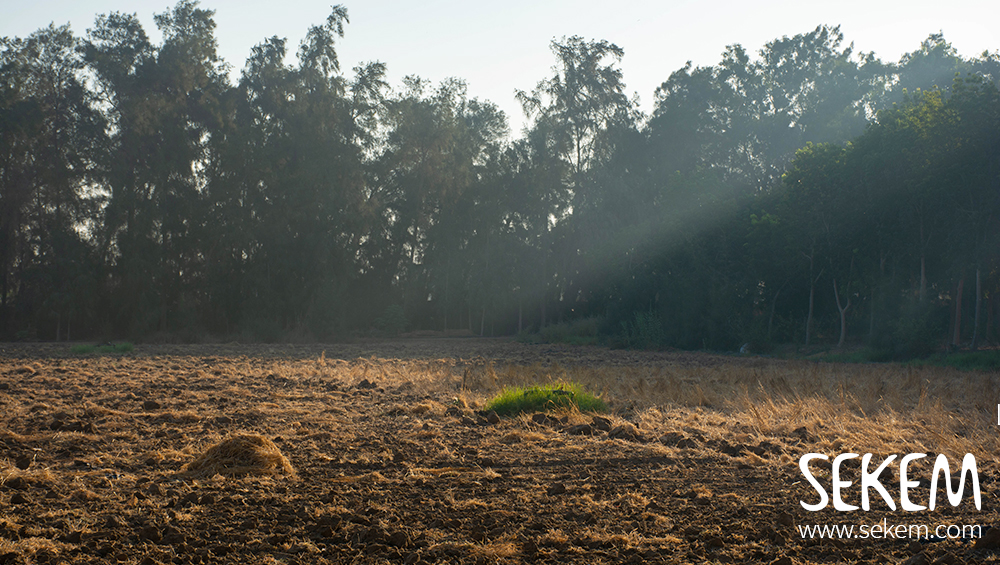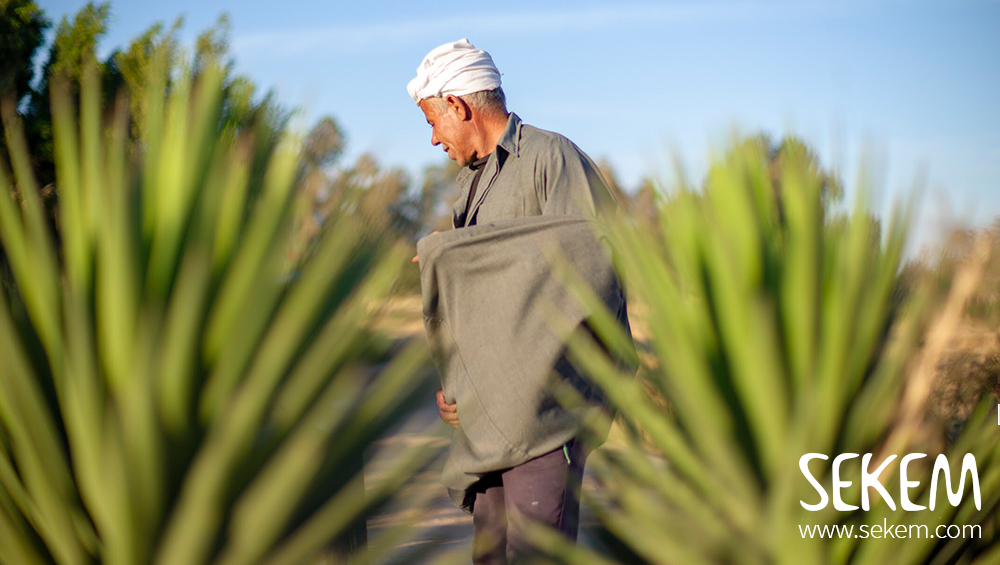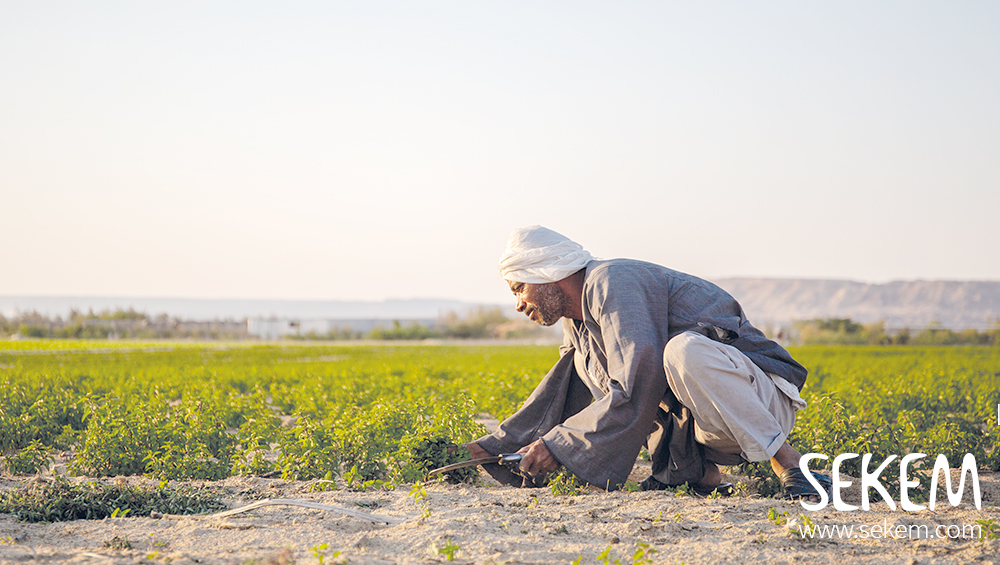Whether in Egypt, Germany, Europe or worldwide – it is predicted that the currently established climate goals are unlikely to be achieved. However, according to international experts, there are in fact more than enough ways to create a climate-neutral world.
With more than 40 years of experience in sustainable agriculture, we at SEKEM are convinced that a change in the agricultural sector alone could bring us quite close to the international climate objectives. But how have we come to the belief that humankind can stop climate change through just one sector?
First of all, it is important to realize that agriculture and forestry have been the largest single contributors towards climate damage over the past 200 years. According to a report by the Intergovernmental Panel on Climate Change (IPCC, 2014), direct agriculture and forestry are responsible for nearly 24 percent of global greenhouse gas emissions. “Direct” in this context means that energy or transportation used in agriculture have not been taken into account, but only factors such as soil nitrogen, biomass burning, fertilizer production, animal husbandry and irrigation. Conversely, this also means that sustainable agriculture, especially the Biodynamic approach, offer solutions. We want to take a closer look at three factors in particular, which help to illustrate this thesis.

First of all, the world’s fertile soil that is used for agriculture (1.6 billion hectares) has the potential to bind 8.6 gigatons of CO2 per year. However, this can only be done if the soil was managed sustainably. For example, by abandoning chemical nitrogen fertilizers and pesticides, through certain crop rotations or by implementing the concept of circular economy on the farm. This is what the IPCC has defined in a “Special Report on Climate Change and Land”. Research on our own fields has conclusively shown that biological, dynamically cultivated soil binds an equivalent of more than 3 tons of CO2 per hectare per year. If we only start from this minimal calculation on our own experiences, the 1.6 billion hectares of agricultural land worldwide could already save about 5 gigatons of CO2 if they were managed according to Organic guidelines.
Planting trees offers further potential, and this approach is essential in Biodynamic agriculture. Again, based on our experience we can state that it makes sense to plant around 220 trees per hectare (sequestering approx. 5.5 tons of CO2 per year) to foster a healthy agricultural cycle. If we apply this integral agricultural approach on 1.6 billion hectares, this would bring a further 8.8 gigatons of CO2 savings. Not to forget, the further potential that the forests with all its trees own.

A third reason that Biodynamic farming can significantly mitigate climate change is due to its lack of use of artificial fertilizers and pesticides. The production of nitrogen fertilizers alone is extremely energy inefficient and causes up to 0.6 gigatons of CO2 per year, not to mention the high nitrous oxide emissions (up to 300 times more harmful to the climate then CO2) that are caused by nitrogen fertilizers and that are polluting groundwater or the air.
If we now only sum up these savings that would be realized when shifting completely to Organic agriculture, we can count already 15 gigatons of CO2 – quite close to the goal of reducing 50 percent of global greenhouse gas emissions as currently around 36 gigatons of CO2 are emitted annually.
However, there are always arguments that say that this calculation does not work out. For example, it is often argued that Organic farming needs much more fertile land than what is currently available, or that Organic food is more expensive and thus not affordable for all. These objections can be countered by the fact that we actually do not have a problem of space for growing foods in this world but rather one of distribution and managing resources. There is far more food produced than humanity can consume – it is just not distributed in a just way, so that over half of all food production ends up as waste. Another counterargument to concerns about the quantity of agricultural production is that, in most cases, Organic food is of higher quality and therefore has better nutritional value than the quickly produced conventional foodstuffs (i.e. less can be more). Also, with regard to prices, Organic food is in fact already cheaper to produce than conventional products. If the externalized costs, which are currently transferred to future generations, would appear in supermarket bills, this would already be obvious to everyone. Taking this into consideration, research on our own production have shown that a wide variety of Organic grown crops are cheaper than crops grown under conventional practices if the costs for pollution, CO2 emissions, energy, water consumption, and the negative impacts on human health are considered.

We could give many more reasons why we believe that there are many opportunities to tackle climate change and many other challenges of our time. It is important that we always think sustainable and take into account what we can shape in the future and as well as what comes towards us from the future. If we look at things holistically, we believe that Biodynamic agriculture will become mainstream sooner or later – may it be by crisis or understanding – and make an important contribution to combating climate change.
Helmy Abouleish and Christine Arlt
The Future of the Organic Sector and Our Earth
German-Egyptian Cooperation for Promoting Organic Production in Egypt
Hand in Hand Against Climate Change
Offset Your CO2 Footprint with SEKEM

